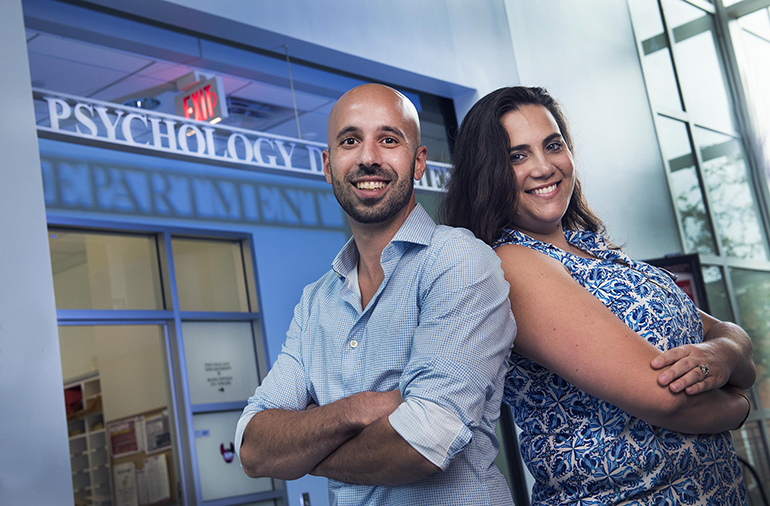 A pair of faculty members at Indiana University of Pennsylvania recently received a $334,787 grant from the National Science Foundation to study biases in opinions relating to the testimony of experts in forensic psychology cases.
A pair of faculty members at Indiana University of Pennsylvania recently received a $334,787 grant from the National Science Foundation to study biases in opinions relating to the testimony of experts in forensic psychology cases.
Jennifer and Anthony Perillo, assistant professors in the Department of Psychology, will use the funding to study how experts in the field of forensic psychology sometimes are influenced by outside factors that result in them having biased opinions.
The grant is the largest grant awarded to the Department of Psychology since 1987, when the psychology doctoral program (PsyD) was created.
Forensic psychology encompasses a range of topics in criminal and civil cases.
“It's about using psychology to answer key questions in the legal system,” said Anthony Perillo. “It's everything from insanity defenses to risk assessments to mental competency hearings.”
Jennifer Perillo said she got the idea to seek the funding after reading an article about a different topic.
“I was inspired by an article I read about plea bargaining,” she said. “It talked about how and why lawyers and prosecutors come up with plea decisions. It talked about what sort of elements went into making the decisions, and I thought that the framework of that study could be used on this topic.”
It took two years to complete the proposal and receive the approval from the NSF.
For the study, the Perillos will offer case files to experts in the forensic psychology field and gauge their decisions.
“The big issue is that the experts are supposed to be objective,” Anthony Perillo said, “but sometimes they can be unintentionally biased toward who hired them.”
The hope is that enough data will show some patterns or trends in terms of what influences experts' opinions, which could then help lead to suggestions for better ways to conduct forensic evaluations.
“In general, people have biases,” Jennifer Perillo said. “What we're interested in is the perception that if you are an expert, you are immune to biases. But this isn't just a forensic psychology issue because sometimes there are biases from other kinds of experts, too.”
The grant for the two-year study has afforded the Perillos the opportunity to hire two graduate assistants, Masha Berman and Sarah Kysor. The students will work with the Perillos to create the case files, send them out, collate the data, and then help come up with a conclusion.
“This is an issue where we know the ‘what' but we don't understand the ‘why,'” Anthony Perillo said. “We don't know what goes into making some of these decisions.”
“We can't eliminate biases,” Jennifer Perillo added, “but we can reduce them. The more we reduce biases, the fairer our justice system can be.”